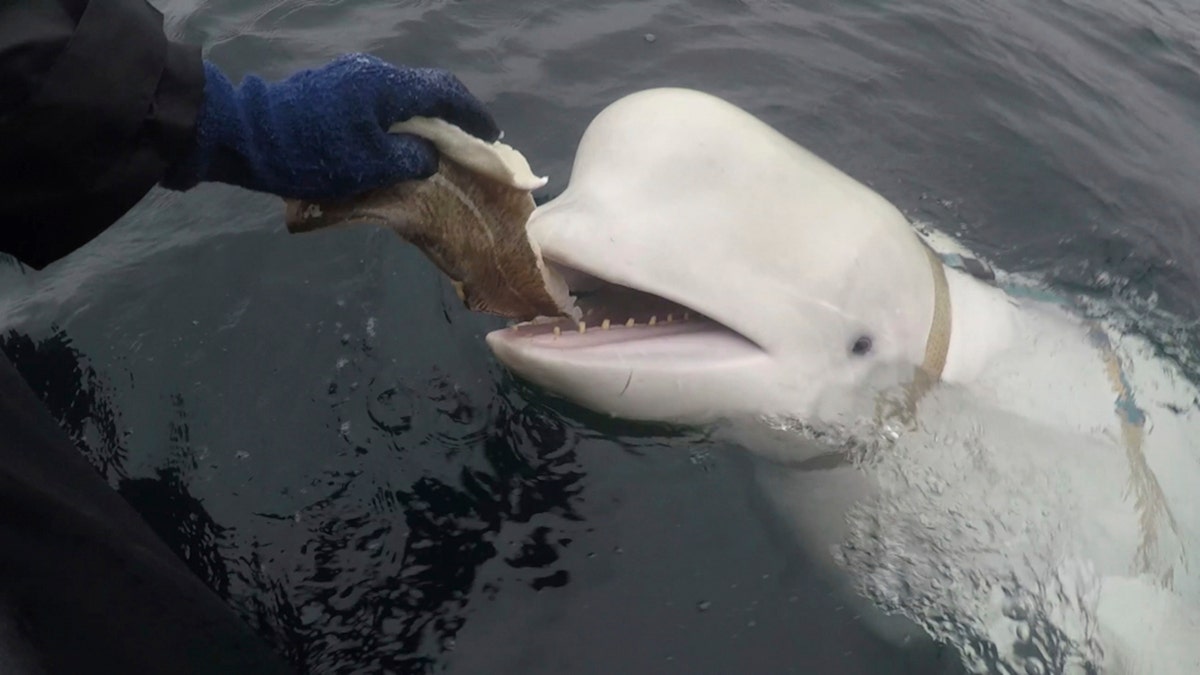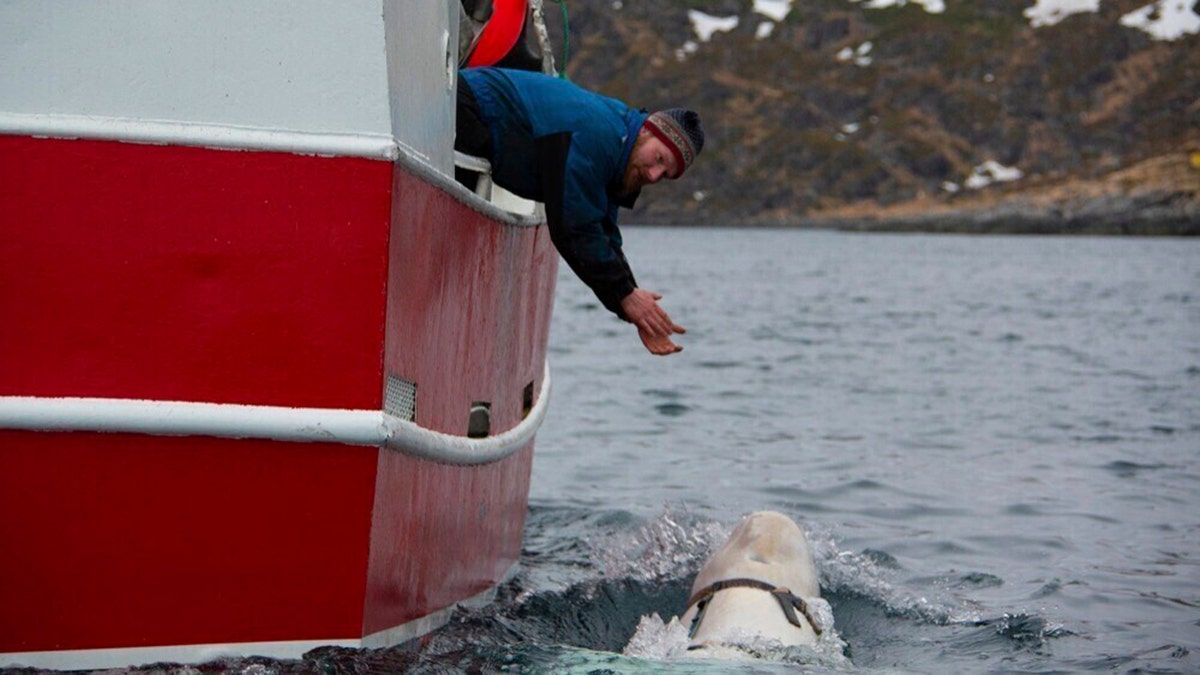INTERNACIONAL
Another US MQ-9 Reaper drone reportedly downed in Yemen

Another U.S. MQ-9 Reaper drone went down in Yemen, images purported to show Wednesday, as Yemen’s Houthi rebels continued attacks on shipping around the Red Sea over the Israel-Hamas war.
The Houthis released footage they said showed the aircraft being targeted with a surface-to-air missile in a desert region of Yemen’s central Marib province. It marked the third-such downing this month alone.
Images analyzed by The Associated Press showed the MQ-9 on its belly in the barren desert, its tail assembly disconnected from the rest of its body. At least one hatch on the drone appeared to have been opened after it landed there, though the drone remained broadly intact without any clear blast damage. One image included Wednesday’s date.
IRAN-BACKED HOUTHI REBELS IN YEMEN CLAIM THEY SHOT DOWN ANOTHER US DRONE AS ATTACKS INTENSIFY
Noticeably, the drone did not appear to carry any markings on it.
Authorities in Marib, which remains held by allies of Yemen’s exiled government, did not acknowledge the drone.
A U.S. defense official, speaking on condition of anonymity to discuss intelligence matters, told the AP that «the U.S. Air Force has not lost any aircraft operating within U.S. Central Command’s area of responsibility.» The official declined to elaborate.
The CIA also is believed to have flown Reaper drones over Yemen, both to monitor the war and in its campaign against al-Qaida in the Arabian Peninsula, Yemen’s local affiliate of the militant group. The CIA declined to comment when reached by the AP.
This is a locator map for Yemen with its capital, Sanaa. (AP Photo)
Located 75 miles east of Sanaa, Marib sits on the edge of the Arabian Peninsula’s Empty Quarter Desert at the foot of the Sarawat Mountains running along the Red Sea. The province has seen U.S. drones previously brought down there, in part because the region remains crucial for the outcome of Yemen’s yearslong war.
Since Yemen’s civil war started in 2014, when the Houthis seized most of the country’s north and its capital of Sanaa, the U.S. military has lost at least five drones to the rebels. This month alone, there’s been two others suspected shootdowns of Reapers that the American military hasn’t confirmed.
Reapers cost around $30 million apiece. They can fly at altitudes up to 50,000 feet and have an endurance of up to 24 hours before needing to land.
The Houthis in recent months have stepped up attacks on shipping in the Red Sea and the Gulf of Aden, demanding that Israel end the war in Gaza, which has killed more than 36,000 Palestinians there. The war began after Hamas-led militants attacked Israel on Oct. 7, killing about 1,200 people and taking some 250 hostage.
The Houthis have launched more than 50 attacks on shipping, seized one vessel and sunk another since November, according to the U.S. Maritime Administration.
Shipping through the Red Sea and Gulf of Aden has declined because of the threat.
CLICK HERE TO GET THE FOX NEWS APP
On Wednesday, Houthi military spokesman Brig. Gen. Yahya Saree acknowledged the rebels attacked the bulk carrier Laax on Tuesday. Saree also claimed a number of other attacks on vessels that have not reported assaults without offering any evidence to support his claim. Saree in the past has exaggerated Houthi attacks.
INTERNACIONAL
Was a beloved whale suspected of being a Russian ‘spy’ killed in Norway?

Havldimir quickly became a celebrity in Norway, swimming his way into their Nordic hearts.
But this beluga whale’s odd story started in 2019 when he was discovered in northern Norway near the island of Ingoya wearing a harness with «Equipment St Petersburg» written in English connected to a mount for a small camera.
Hvaldimir, as Norwegians dubbed him – mixing together the Norwegian word for whale and Russian President Vladimir Putin’s name – was intelligent, friendly and responded to hand signals, leading Norway’s spy agency to believe he had been held in captivity by Russia and used for research purposes.
Once Hvaldimir was freed from his harness, though, his friendly personality made him beloved in the country.
CRITICALLY ENDANGERED WHALE SEEN OFF CALIFORNIA COAST: ‘EVERY SIGHTING IS INCREDIBLE VALUABLE TO US’
Hvaldimir was found in 2019 wearing a harness with a camera mount on it. (Jorgen Ree Wiig/Sea Surveillance Service/Handout/NTB Scanpix via Reuters/File Photo)
He was fed and monitored by the Norwegian government and dubbed a «free-swimming whale» by the Norwegian Orca Survey, venturing as far as Sweden but always returning home, according to The Telegraph.
Hvaldimir was found dead off southern Norway last weekend.
«It’s absolutely horrible,» marine biologist Sebastian Strand, who worked with Marine Mind, told Norwegian public broadcaster NRK. «He was apparently in good condition as of (Friday), so we just have to figure out what might have happened here.»
BREACHING WHALE CAPSIZES BOAT AFTER LANDING ON TOP OF IT OFF NEW HAMPSHIRE, SHOCKING VIDEO SHOWS

Hvaldimir, being fed here, became beloved in Norway. (orgen Ree Wiig, Norwegian Directorate of Fisheries via AP)
Hvaldimir may have died of natural causes, but conservation groups NOAH and One Whale have filed police reports claiming he was shot, according to the Telegraph.
The Oceanic Preservation Society said that a necropsy will be done on Hvaldimir to determine his cause of death in the next few weeks.
«We’ve been absolutely devastated over the news, and are deeply saddened that humanity failed this beloved whale,» the organization said on social media.

He was fed and monitored by the Norwegian government and dubbed a «free-swimming whale» by the Norwegian Orca Survey, venturing as far as Sweden but always returning home. (Jorgen Ree Wiig, Norwegian Directorate of Fisheries via AP)
Nonprofit Marine Mind said on Facebook that Hvaldimir «bridged the gap» between humans and wild animals in a way «few can.»
CLICK HERE TO GET THE FOX NEWS APP
«Hvaldimir was not just a beluga whale; he was a beacon of hope, a symbol of connection, and a reminder of the deep bond between humans and the natural world,» the organization said. «Over the past five years, he touched the lives of tens of thousands, bringing people together in awe of the wonders of nature. His presence taught us about the importance of ocean conservation, and in doing so, he also taught us more about ourselves.»
Reuters and the Associated Press contributed to this report.
-
POLITICA2 días ago
La represión a los jubilados, un espejo en el que duele reconocerse
-
POLITICA2 días ago
“Estúpido” y “exlibertario”: reapareció Cristina Kirchner y cruzó muy duro a Javier Milei
-
POLITICA1 día ago
Milei versus Cristina: el Presidente le responde a la exvicepresidenta en el Congreso del IAEF y habla sobre el dólar y el cepo
-
POLITICA2 días ago
Javier Milei planea exponer el Presupuesto en el recinto de Diputados y ya genera polémica con la oposición
-
POLITICA2 días ago
Argentina – Chile, en vivo
-
CHIMENTOS2 días ago
La versión de Victoria Onetto sobre su «aventura» con Alberto Fernández




























